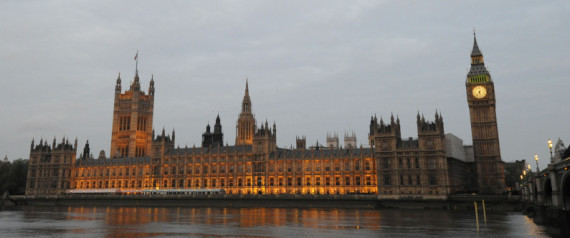The British government outlined plans for the world's first state-backed green investment bank on Monday – a key plank of its pledge to transition the country into a low-carbon economy.
Deputy Prime Minister Nick Clegg said the bank will open for business next April and will likely focus initially on investing in areas such as offshore wind, waste and non-domestic energy efficiency.
The bank will be capitalized with an initial 3 billion pounds ($4.8 billion) from the Treasury coffers but will be given independence from the Treasury and will be able to borrow in the capital markets and from the private sector from April 2015.
Clegg said he expects the bank to have injected some 15 billion pounds into the green economy within four years.
"The bank is intended to bridge the gap between venture capital and the green economy, provide the finance for low-carbon infrastructure and lay the foundation for long-term, balanced growth," said Clegg, the leader of the junior Liberal Democrats party in the Conservative-led coalition government.
"The green investment bank will go from an idea to a flow of investment in under two years, and quickly grow into an independent investing, and then borrowing, institution," he added, noting it was an "an extraordinary political commitment" at a time the government is axing billions of dollars of spending to cut heavy national debt.
Clegg said the global market for low-carbon and environmental goods and services was worth 3.2 trillion pounds in 2008/09, and is forecast to continue to show strong growth.
Many countries around the world have a development bank, but Britain will be first to have a national bank dedicated to the green economy.
The plans announced by Clegg make some key concessions for critics who had feared the bank would be too tightly controlled by the Treasury, which had argued for the bank to be allowed only to borrow from the government.
Campaigners argued that if the bank was not allowed to borrow from the capital markets, it would be unable to deliver the necessary investment in low-carbon technology.
Clegg said the bank will have full operational independence "as soon as possible." And it will have borrowing powers from April 2015 as long as targets for reducing government debt have been met.
Greenpeace executive director John Sauven welcomed the government's commitment to the bank's independence, but said that it will be "hamstrung from the outset by keeping the restriction on borrowing powers until at least 2015."
John Cridland, the director general of the Confederation of British Industry, said the bank must deliver certainty for investors if it is to generate the scale and pace of investment needed to shift the UK to a low-carbon economy.
Cridland, who has forecast that 450 billion pounds of investment is needed by 2025 to bring green jobs and opportunities to Britain, warned the bank "won't work if it needs the Treasury's permission to blow its nose."
"The bank needs to be able to get into the markets itself and do what it's intended to do," he added.


No comments:
Post a Comment